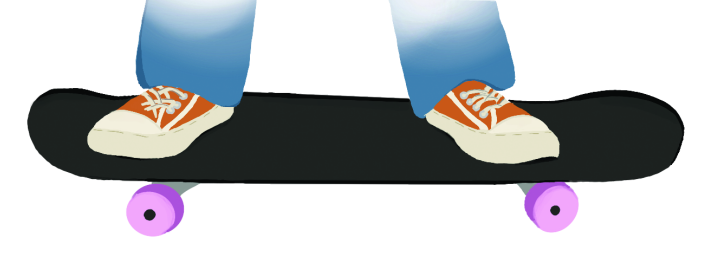Balancing your life, not for your life
February 10, 2023
“There is a strong link between workplace productivity and work-life balance. How well a company makes sure its employees live healthy, happy lives outside of work is often reflected in productivity,” wrote the magazine HR Future. This article goes on to highlight the importance of living a fulfilling life outside of work for the purpose of performing as best as you can within your occupation, a trend that other publishers seem to be following.
These articles stress the importance of finding a balance within your life and go on to suggest several methods for achieving that. Most of these suggestions fall along the lines of reducing stress so you are less likely to call out from work, finding a hobby to keep oneself from burning-out and the importance of exercise to give yourself the mental endurance to stay focused throughout the workday.
Each of these seem perfectly reasonable and even benevolent suggestions; how can reducing stress, finding a hobby and getting some exercise ever fall under the category of bad advice? The answer is, of course, they do not. However, an issue arises when they are considered in relation to the term “balance.”
Balance, the word itself, has a multitude of definitions; however one of the most commonly recognized from Oxford’s Languages is “a condition in which different elements are equal or in the correct proportions.” This is perhaps what so many are trying to emulate when searching for a “work-life balance”: an equilibrium in which their work, relationships, physical and mental well-being and other hobbies all take up an appropriate amount of space within their life.
This is why we begin to see so many suggestions along the lines of light aerobic exercise, properly communicating with your employer about adequate responsibilities and allowing yourself to take time for yourself, followed by articles that reinforce this ideology by highlighting what an excellent employee it can make.
However, an increasing number of American workers seem to be struggling with this notion, with a 59 percent burnout rate reported by NPR News. This is perhaps because our definition of balance is not the one above, centered on proportion. The balance we see in the workplace is more closely related to the following definition: “keep or put (something) in a steady position so that it does not fall.”
Balance derived from and perpetuated by the need to keep up within the workplace may never be fulfilling.
Balance within the earlier definition highlights the necessity of defining yourself in a multitude of ways, each fulfilling some aspect of yourself. The secondary definition makes balance a hobby, something to do on the side to keep your primary focus – work – attainable. It is balance for the sake of productivity, as opposed to balance for the sake of balance. Therein lies the issue: so much of our lives revolves around work or school that even our escapes from them have become a way in which we can affect work or school, which could be why so many of us fail to keep an “adequate” level of balance. Taking care of yourself only so you can perform at work is a drab existence.
So perhaps it is time to fully separate each sector of our lives for the sake of balance. We should center balance within our lives as an objective as opposed to a hobby. This is, admittedly, no small task; it will require taking a holistic look at yourself and your life. What interests you? What do you want out of your life? What does happiness look like to you? What does relaxed look like to you? What does the right amount of work and play look like to you?
These are not easily answerable questions, as they demand a certain level of time and reflection in order to answer them, but to ignore them means to keep living as if your own life is a side endeavor secondary to your performance at work or school.
So recenter yourself around what you love, what brings you joy, what leaves you fulfilled and design your life to allow yourself to experience each of these things – as well as work instead of alongside it. Do not allow yourself to view it as a means to an end, but as a way to keep yourself from looking back and realizing that, all along, your life has been about work.



